As pet owners, we’re always on the lookout for nutritious and delicious treats to share with our canine companions.
Eggs, with their versatile nature and high protein content, are a staple in many households. But can dogs partake in this breakfast favorite?
Let’s crack open the shell of this topic and explore whether eggs are a safe and beneficial addition to your dog’s diet.
Contents Overview
What is an Egg?
An egg is a nutrient-rich, oval-shaped organic vessel laid by female animals, typically birds, for reproduction. It consists of a protective shell, egg white (albumen), and yolk enclosed within membranes.
Eggs serve as a primary source of high-quality protein, essential vitamins, and minerals, making them a versatile ingredient in cooking and baking.
They come in various sizes and colors, with chicken eggs being the most commonly consumed type worldwide.
The Nutritional Benefits of Eggs
Eggs are not only delicious but also packed with essential nutrients that offer numerous health benefits for both humans and dogs:
- Protein: Eggs are an excellent source of high-quality protein, which is essential for muscle growth, repair, and overall health in dogs.
- Vitamins and Minerals: Eggs contain various vitamins and minerals, including vitamin A, vitamin D, vitamin B12, riboflavin, and selenium, which support various bodily functions and promote overall wellness.
- Omega-3 Fatty Acids: Eggs are rich in omega-3 fatty acids, which help support skin and coat health, reduce inflammation, and promote cardiovascular health in dogs.
- Digestibility: Eggs are highly digestible and can be beneficial for dogs with sensitive stomachs or digestive issues.
Can Dogs Safely Eat Eggs?
Yes, dogs can safely eat eggs as they are a nutritious addition to their diet. Eggs are an excellent source of digestible protein and contain essential vitamins and minerals beneficial for dogs, including vitamin A, B vitamins, and iron.
Feeding eggs to dogs can help support their muscle development, immune system, and overall health.
However, it’s important to feed eggs to dogs in moderation and ensure they are cooked thoroughly to avoid the risk of bacterial contamination, such as salmonella.
Additionally, some dogs may have allergies to eggs, so it’s advisable to introduce them gradually into their diet and monitor for any adverse reactions.
Potential Benefits of Egg to Dogs
Eggs are a staple in many human diets, but did you know they can also provide various benefits to our canine companions?
While some dog owners may be cautious about feeding eggs to their pets, they can be a nutritious addition to a dog’s diet when given in moderation.
Let’s delve into the potential benefits of feeding eggs to dogs.
1- Healthy Fats
Contrary to common misconceptions, the fats found in eggs can be beneficial for dogs when consumed in moderation.
Omega-3 Fatty Acids: Eggs contain omega-3 fatty acids, particularly in the yolk, which can support heart health, reduce inflammation, and promote a shiny coat.
Monounsaturated Fats: These healthy fats can aid in nutrient absorption and help maintain a healthy weight in dogs.
2- Improved Skin and Coat
Feeding eggs to dogs may result in noticeable improvements in their skin and coat condition.
Biotin: Eggs are rich in biotin, a B vitamin that plays a key role in maintaining healthy skin and coat. Regular consumption of eggs can help alleviate dryness, itchiness, and flakiness in dogs.
Lustrous Coat: The combination of protein, vitamins, and healthy fats in eggs can contribute to a glossy and lustrous coat, making your furry friend look and feel their best.
3- Digestive Health
Incorporating eggs into a dog’s diet can support digestive health and function.
Digestible Protein: The protein in eggs is highly digestible for dogs, making it gentle on their digestive systems.
Source of Choline: Eggs contain choline, a nutrient that aids in the metabolism of fats and supports liver function, promoting overall digestive health.
4- Weight Management
Despite their nutrient density, eggs are relatively low in calories, making them a suitable addition to a weight management diet for dogs.
Satiety: The protein and healthy fats in eggs can help dogs feel fuller for longer periods, reducing the likelihood of overeating or begging for additional snacks.
Lean Muscle Maintenance: The protein content in eggs can support the maintenance of lean muscle mass while aiding in weight loss or weight maintenance efforts.
Potential Risks and Precautions of Feeding Eggs to Dogs
Feeding eggs to dogs can offer various nutritional benefits, but like any food, there are potential risks to be aware of.
Here, we’ll explore the possible risks associated with feeding eggs to dogs and the precautions you can take to mitigate them.
1- Salmonella Contamination
Risk: Raw eggs can potentially contain salmonella bacteria, which can cause foodborne illness in both dogs and humans.
Precaution: Always cook eggs thoroughly before feeding them to your dog to eliminate the risk of salmonella contamination. Avoid feeding raw eggs or foods containing raw eggs to your canine companion.
2- Allergic Reactions
Risk: Some dogs may be allergic to eggs, experiencing adverse reactions such as itching, skin irritation, vomiting, or diarrhea.
Precaution: Monitor your dog closely for any signs of allergic reactions after introducing eggs into their diet. If you notice any adverse symptoms, discontinue feeding eggs and consult your veterinarian for guidance.
3- Digestive Upset
Risk: Introducing new foods, including eggs, into a dog’s diet too quickly or in excessive amounts can potentially cause digestive upset, leading to symptoms such as diarrhea or vomiting.
Precaution: Introduce eggs gradually into your dog’s diet, starting with small amounts and monitoring their response. Feed eggs in moderation to prevent overconsumption and potential digestive issues.
4- Obesity
Risk: Eggs are calorie-dense and can contribute to weight gain if fed in excess, especially for dogs with sedentary lifestyles or weight management concerns.
Precaution: Consider your dog’s individual calorie needs and adjust their overall diet accordingly when incorporating eggs. Feed eggs as a treat or supplement to their regular meals rather than as a primary source of nutrition, especially for overweight or obese dogs.
5- Interference with Biotin Absorption
Risk: Raw egg whites contain avidin, a protein that can bind to biotin (a B vitamin), potentially interfering with its absorption and leading to biotin deficiency over time.
Precaution: Cooking eggs denatures avidin, rendering it inactive and eliminating the risk of biotin deficiency. Always feed dogs cooked eggs rather than raw eggs to ensure optimal biotin absorption and overall nutritional balance.
Safe Ways to Feed Eggs to Dogs
Feeding eggs to dogs can be a nutritious and delicious addition to their diet when done safely. Here are some safe ways to feed eggs to your canine companion:
1- Cooked Eggs
Hard-Boiled: Hard-boiled eggs are a simple and safe option for feeding to dogs. The cooking process eliminates the risk of salmonella contamination while preserving the nutritional benefits of the egg.
Scrambled: Scrambled eggs are another popular choice for dogs. Cook them without adding any oil, butter, or seasoning, as these can be unhealthy or even harmful to dogs.
2- Egg Toppings
Mix with Dog Food: You can add cooked eggs, either chopped or mashed, as a tasty topping to your dog’s regular food. This adds variety to their diet while providing additional protein and nutrients.
In Homemade Treats: Incorporate cooked eggs into homemade dog treats or biscuits for a nutritious and flavorful snack. Just be sure to use dog-friendly ingredients and avoid any harmful additives.
3- Eggshell Powder
Crushed Eggshells: Crushed eggshells can be a natural source of calcium for dogs. After cooking the eggs, thoroughly clean and crush the eggshells into a fine powder. Sprinkle a small amount over your dog’s food as a calcium supplement, particularly beneficial for dogs on a homemade diet lacking in calcium.
4- Moderation and Observation
Monitor Portions: While eggs can be a healthy addition to a dog’s diet, they should be fed in moderation. Consider your dog’s size, weight, and individual dietary needs when determining portion sizes.
Watch for Reactions: Introduce eggs gradually into your dog’s diet and monitor for any adverse reactions, such as allergic symptoms or digestive upset. If your dog shows any signs of discomfort or illness after eating eggs, discontinue feeding them and consult your veterinarian.
5- Consult with a Veterinarian
Individualized Advice: Every dog is unique, and their dietary requirements may vary based on factors such as age, breed, health status, and any underlying medical conditions. Before making significant changes to your dog’s diet, including the introduction of eggs, consult with your veterinarian for personalized guidance and recommendations.
When to Avoid Egg to Dog
- Allergic Reactions: If your dog has shown allergic symptoms to eggs or egg products in the past.
- Salmonella Risk: If you’re unable to cook eggs thoroughly eliminate the risk of salmonella contamination.
- Digestive Issues: If your dog experiences digestive upset or diarrhea after consuming eggs.
- Weight Management: If your dog is overweight or obese, eggs are calorie-dense and can contribute to weight gain if fed in excess.
- Medical Conditions: If your dog has specific medical conditions, such as pancreatitis or a history of gastrointestinal problems, consult with your veterinarian before introducing eggs into their diet.
Safe and Suitable Alternatives of Egg for Dogs
If you’re looking for safe and suitable alternatives to eggs for your dog, consider options such as lean meats like chicken or turkey, which provide high-quality protein without the risk of salmonella contamination.
Additionally, plain, unsweetened yogurt or cottage cheese can offer beneficial probiotics and calcium. Vegetables like cooked carrots, green beans, or sweet potatoes are low in calories and rich in vitamins and minerals.
Always ensure that any foods you offer to your dog are cooked, free from seasoning or additives, and appropriate for their dietary needs.
Bottom Line
In conclusion, eggs can be a safe and nutritious treat for dogs when served cooked and in moderation. Packed with protein, vitamins, minerals, and omega-3 fatty acids, eggs offer numerous health benefits for our canine companions.
Whether scrambled, boiled, or baked into tasty treats, eggs are sure to become a favorite snack in your pup’s treat repertoire. Just remember to avoid feeding raw eggs and any added seasonings or additives.
With careful consideration and moderation, you can treat your furry friend to the wholesome goodness of eggs and enjoy the satisfaction of providing them with a nutritious and delicious snack.
So go ahead, crack open a few eggs, and delight your canine companion with this protein-packed treat!



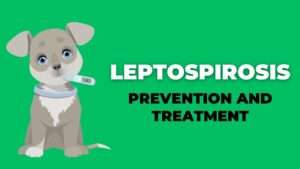






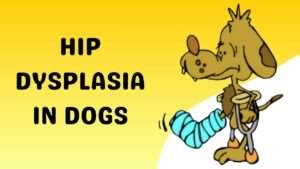










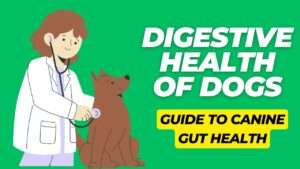

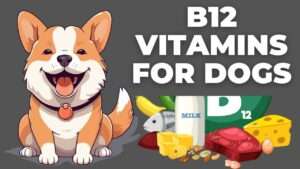

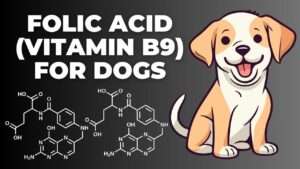










+ There are no comments
Add yours